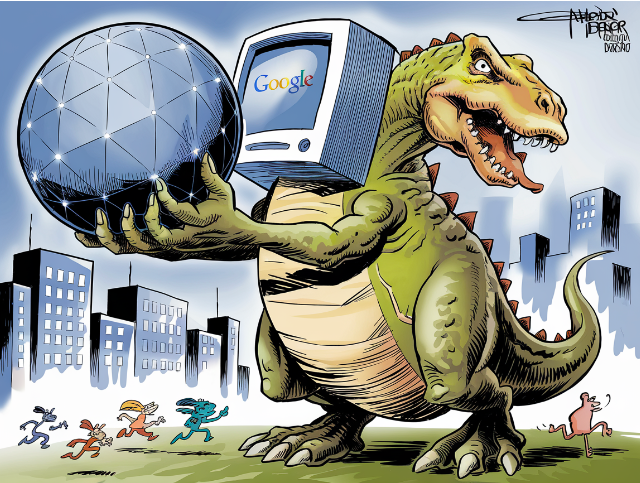News
This Time, Google’s Latest Antitrust Lawsuit is About Advertising Technology

Google's latest antitrust lawsuit intensified Department of Justice’s (DOJ) scrutiny of the tech giant on its advertising technology dominance. Following a September 2023 trial regarding its search engine monopoly, the DOJ is now arguing that Google's monopolistic practices extend into the ad-tech sector.
Google’s Alleged Control Over Digital Advertising
At the heart of Google's latest antitrust lawsuit is the claim that the company’s advertising technology services, which generated 77% of its $307 billion revenue in 2023, give it too much control over the digital advertising ecosystem. By controlling the buying, selling, and ad exchange processes, Google has allegedly limited competition, raised ad costs, and stifled innovation.
This new development in Google’s latest antitrust lawsuit underscores how the DOJ believes that Google’s control of the advertising marketplace unfairly disadvantages smaller competitors. Critics argue that this dominance is akin to a financial institution owning a major stock exchange, a clear conflict of interest that limits fair competition.
Acquiring and Neutralizing Competitors
One of the central issues in Google's latest antitrust lawsuit is the company’s acquisition strategy. Over the last 15 years, Google has strategically acquired smaller competitors to consolidate its control over the advertising technology market. Key acquisitions, such as DoubleClick, have given Google significant power on both the publisher and advertiser sides of the ad-tech business. As a result, Google now operates an “ad-tech stack” that leaves competitors with little room to grow.
Google’s latest antitrust lawsuit claims that these acquisitions have created a near-monopoly that makes it difficult for new competitors to enter the market. Advertisers and publishers are forced to use Google’s tools, leading to higher costs and reduced innovation in the space.
Google’s Latest Antitrust Lawsuit Charges that It Manipulates the Ad Auction Process
Another critical point in Google's latest antitrust lawsuit is the accusation that Google has manipulated the ad auction process. The DOJ has alleged that Google’s control over the largest advertising exchange, combined with its dominance in the ad server space, gives the company the ability to unfairly influence ad auction outcomes.
Google’s latest antitrust lawsuit points out that by controlling both the buy-side and sell-side platforms, Google can manipulate the bidding process to its advantage, maximizing its profits while harming competitors and inflating ad prices for businesses. Smaller publishers, in particular, suffer reduced revenue opportunities due to this monopolistic behavior.
Google Recent String of Legal Battles
Google's latest antitrust lawsuit is part of a broader effort by regulators worldwide to curb the company’s dominance in digital markets. Just in August 2023, a U.S. judge ruled that Google had illegally maintained a monopoly in its search business, and the UK’s Competition and Markets Authority has made similar accusations against Google’s ad-tech practices.
As Google's latest antitrust lawsuit progresses, regulators are considering remedies that could drastically alter the company’s business model. Some analysts believe that the DOJ might push for structural changes or forced divestitures to restore competition in the ad-tech space.
What is Google Facing?
The stakes in Google's latest antitrust lawsuit are high. Should the DOJ succeed in its case, the company could face significant penalties, including fines, regulatory oversight, or forced divestitures. The trial, taking place in Virginia, could last for weeks, as both sides present their arguments.
As this new chapter in Google's latest antitrust lawsuit unfolds, it raises essential questions about the future of digital advertising. Will regulators be able to rein in the tech giant, or will Google’s dominance continue unchecked? The answer could reshape the digital advertising landscape for years to come.
Do you agree that Google is unfairly monopolizing the ad-tech services industry? Or, are they delivering exception services to business? Tell us what you think.



